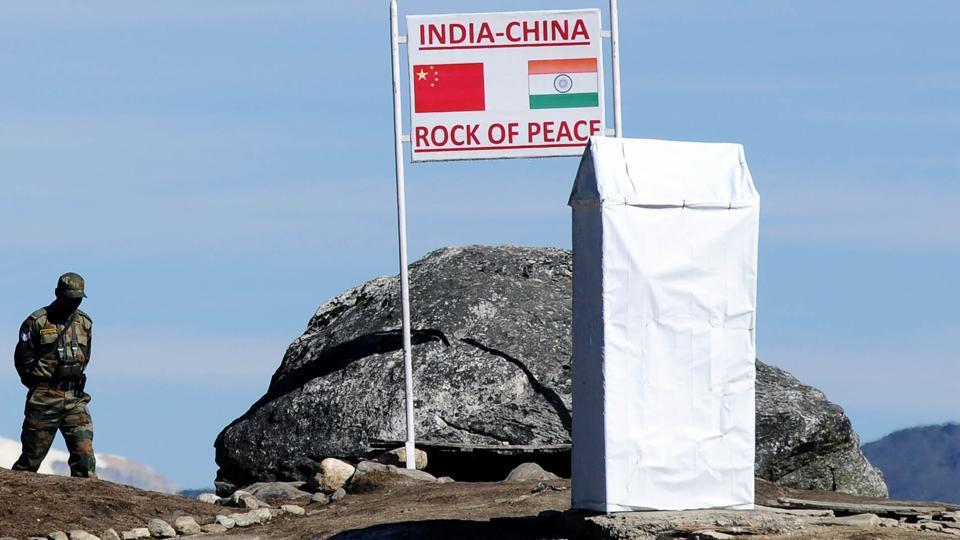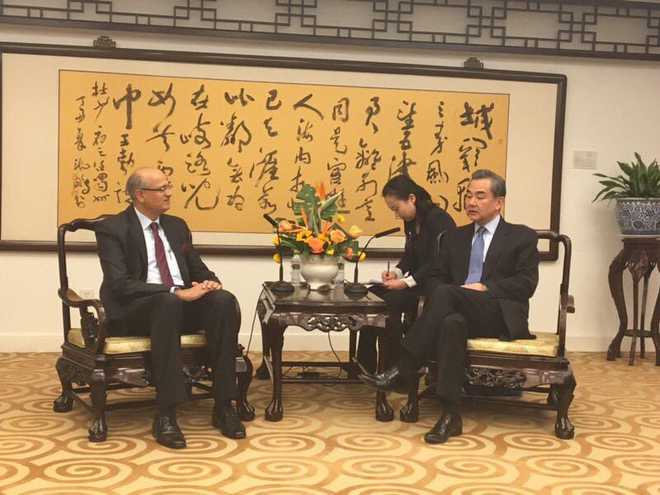Hindustani78
BANNED

- Joined
- Apr 8, 2014
- Messages
- 40,471
- Reaction score
- -47
- Country
- Location
http://indianexpress.com/article/in...-model-for-crisis-management-in-asia-4726338/
Citing the India-China crisis-management mechanism model to address disputes, India’s former national security adviser Shivshankar Menon said today that Asian countries should collectively cooperate to combat terrorism, maritime and cyber security threats. “We should put in place the means to prevent trouble while peace prevails, building crisis management mechanisms, and confidence building measures bilaterally and among groups of countries,” Menon said while addressing the second Conference on Interaction and Confidence-Building Measures in Asia (CICA) in Beijing.
“The example that India and China have together shown, of discussing a settlement of the boundary dispute while maintaining overall peace and tranquillity on their border shows the value of CBMs and crisis management mechanisms where disputes exist,” he said.
Besides the Special Representative-level talks to resolve the border dispute, India and China have worked out dialogue mechanisms between the two militaries on the ground for talks on contentious issues, like the current Sikkim stand-off between the two militaries.
Speaking on the subject ‘an Asian Regional Security Architecture with Asian Features’, Menon also suggested that the countries should work from the beginning to reduce the risks of conflict or accidents, building habits of cooperation among the countries of Asia.
“Terrorism is one issue on which there is much greater scope for cooperation among Asian countries. An issue like maritime security and freedom of navigation is critical for the world’s major trading nations who are now in Asia,” Menon, who was also the former foreign secretary, said.
While terrorism emanating from Pakistan has affected India and Afghanistan; the US, India and other countries highlight the need for freedom of navigation specially in the disputed South China Sea, he said.
China claims almost all of the resource-rich South China Sea and Vietnam, the Philippines, Malaysia, Brunei and Taiwan have counter claims. Menon also said that cyber security is the other area where the gains from cooperation would be significant.
“These three issues, counter-terrorism, maritime security and cyber security, require collective rather than national solutions, and will affect Asia’s future well-being directly,” he said. He said in view of the volatile situation in Asia, the risk of major powers being sucked into local conflicts is higher than it has been for some time.
He said there has been a steady increase in the US military involvement in Syria and American forces have returned to the fighting in Iraq. “There has also been a steady rise in other kinds of conflict and violence throughout Asia, both within societies and between them,” Menon said.
“But despite that history, for several decades, Asia has consistently displayed the flexibility and ability to find practical solutions to security problems, and has provided sufficient security to make possible the greatest improvement in human well-being ever in history,” he said.
“Now we must ensure that the rising geopolitical uncertainty and security challenges are not allowed to prevent Asia’s future march to prosperity,” he added.
Citing the India-China crisis-management mechanism model to address disputes, India’s former national security adviser Shivshankar Menon said today that Asian countries should collectively cooperate to combat terrorism, maritime and cyber security threats. “We should put in place the means to prevent trouble while peace prevails, building crisis management mechanisms, and confidence building measures bilaterally and among groups of countries,” Menon said while addressing the second Conference on Interaction and Confidence-Building Measures in Asia (CICA) in Beijing.
“The example that India and China have together shown, of discussing a settlement of the boundary dispute while maintaining overall peace and tranquillity on their border shows the value of CBMs and crisis management mechanisms where disputes exist,” he said.
Besides the Special Representative-level talks to resolve the border dispute, India and China have worked out dialogue mechanisms between the two militaries on the ground for talks on contentious issues, like the current Sikkim stand-off between the two militaries.
Speaking on the subject ‘an Asian Regional Security Architecture with Asian Features’, Menon also suggested that the countries should work from the beginning to reduce the risks of conflict or accidents, building habits of cooperation among the countries of Asia.
“Terrorism is one issue on which there is much greater scope for cooperation among Asian countries. An issue like maritime security and freedom of navigation is critical for the world’s major trading nations who are now in Asia,” Menon, who was also the former foreign secretary, said.
While terrorism emanating from Pakistan has affected India and Afghanistan; the US, India and other countries highlight the need for freedom of navigation specially in the disputed South China Sea, he said.
China claims almost all of the resource-rich South China Sea and Vietnam, the Philippines, Malaysia, Brunei and Taiwan have counter claims. Menon also said that cyber security is the other area where the gains from cooperation would be significant.
“These three issues, counter-terrorism, maritime security and cyber security, require collective rather than national solutions, and will affect Asia’s future well-being directly,” he said. He said in view of the volatile situation in Asia, the risk of major powers being sucked into local conflicts is higher than it has been for some time.
He said there has been a steady increase in the US military involvement in Syria and American forces have returned to the fighting in Iraq. “There has also been a steady rise in other kinds of conflict and violence throughout Asia, both within societies and between them,” Menon said.
“But despite that history, for several decades, Asia has consistently displayed the flexibility and ability to find practical solutions to security problems, and has provided sufficient security to make possible the greatest improvement in human well-being ever in history,” he said.
“Now we must ensure that the rising geopolitical uncertainty and security challenges are not allowed to prevent Asia’s future march to prosperity,” he added.







